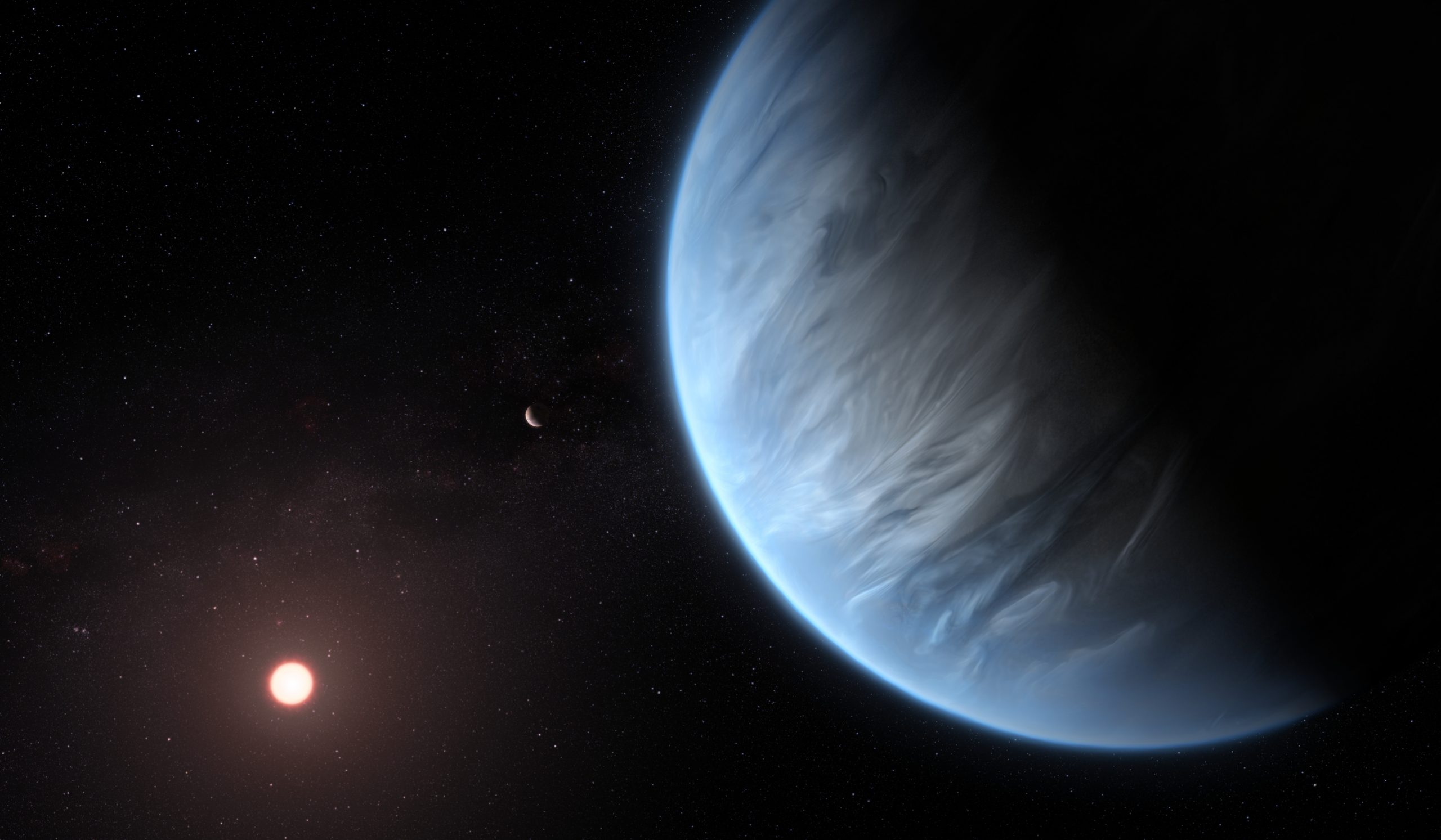Life in a hydrogen-rich atmosphere
The exoplanet K2-18b, about 124 light-years from Earth, is a kind of mini-Neptune, as astronomers discovered this past year. It is seven to ten times heavier than Earth and its radius is 2.7 times larger. K2-18b orbits its host star, a red dwarf, once every 33 days. Thus, it is located in its star’s habitable zone.
For astronomers, however, it has one other special noteworthy feature: hydrogen, helium, and water vapor have been detected in its atmosphere. In the media, K2-18b has even been described as “Earth 2.0,” which it very definitively is not. The researchers who studied it in 2019 described it at the time as “very likely more harmful to life” than Earth.
Hydrogen in the atmosphere is not generally considered especially friendly to life: it is very reactive; any available oxygen molecules would be immediately converted to water, thus ruling out any sort of breathing as we know it. But does that mean we should write off K2-18b as a candidate for extraterrestrial life? That would be a premature conclusion according to scientists. As an experiment, they tested how life might function in a hydrogen-rich atmosphere in a laboratory.
Their findings can now be read in Nature Astronomy. The researchers exposed the intestinal bacteria, E. coli, and yeast to an atmosphere made up of 100 percent hydrogen. Both E. coli and yeast continued to grow and multiply. E. coli grew only half as quickly, and yeast grew 2.5 orders of magnitude more slowly – but both survived. If these structures, which have adapted to Earth’s conditions, could survive – shouldn’t any life born on K2-18b or a similar planet prosper even better?
Planets with hydrogen atmospheres have a certain amount of allure for astronomers. Since hydrogen is much lighter than oxygen and nitrogen, a hydrogen-rich atmosphere extends much farther out into space and is thus easier to detect from Earth. On the other hand, lightweight hydrogen tends to be blown away by volatile stars. But a large and heavy planet like K2-18b should still be able to hold into its atmosphere.
